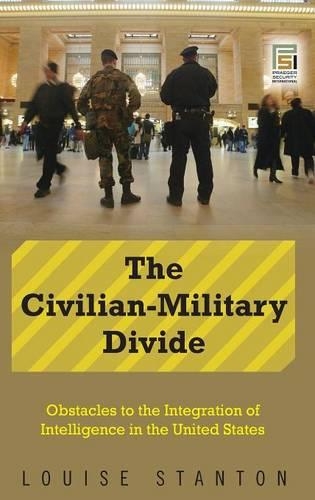
The Civilian-Military Divide: Obstacles to the Integration of Intelligence in the United States
(Hardback)
Publishing Details
The Civilian-Military Divide: Obstacles to the Integration of Intelligence in the United States
By (Author) Louise Stanton
Bloomsbury Publishing PLC
Praeger Publishers Inc
23rd September 2009
United States
Classifications
Tertiary Education
Non Fiction
355.3
Physical Properties
Hardback
288
Width 156mm, Height 235mm
907g
Description
This book examines how U.S. domestic institutions stand up to global threats and whether intelligence sharing across military and civilian law enforcement barriers is legal. The U.S. Constitution is designed to distribute power in order to prevent its concentration, and in particular, it draws clear lines between the responsibilities of the military and those of civilian law enforcement. But the new global threat paradigm, requiring responses both abroad and at home, calls out for military and civilian intelligence gathering to work in tandem. The Civil-Military Divide: Obstacles to the Integration of Intelligence in the United States looks at historic and legal ramifications of such efforts. Louise Stanton's thought-provoking work sums up the current state of U.S. intelligence gathering at all levels of government. It then looks at the range of recommendations for overhauling our intelligence efforts in the context of the U.S. Constitution to assess what may or may not be constitutionally supportable. At issue are three long-established, often reaffirmed principles: the separation of powers, the federalist system that gives the U.S. government precedence over states, and the separation of the civilian and military sectors.
Reviews
One of the areas of weakness exposed by 9/11 was the lack of coordination among the various intelligence agencies in the US. Some of those agencies are part of the military. Others are part of civilian bureaus. The competitive make-up of these organizations, their entrenched methodologies and hierarchies, the separation of powers within the government, and a certain level of distrust make cooperation in the overall intelligence community difficult to accomplish. Expanding on her doctoral thesis, Stanton offers a detailed examination of all these issues, providing a valuable assessment of this important piece of the war on terrorism. * Reference & Research Book News *
Author Bio
Louise Stanton is an adjunct professor in the Department of Political Science Masters Program at New York University, New York, NY.
